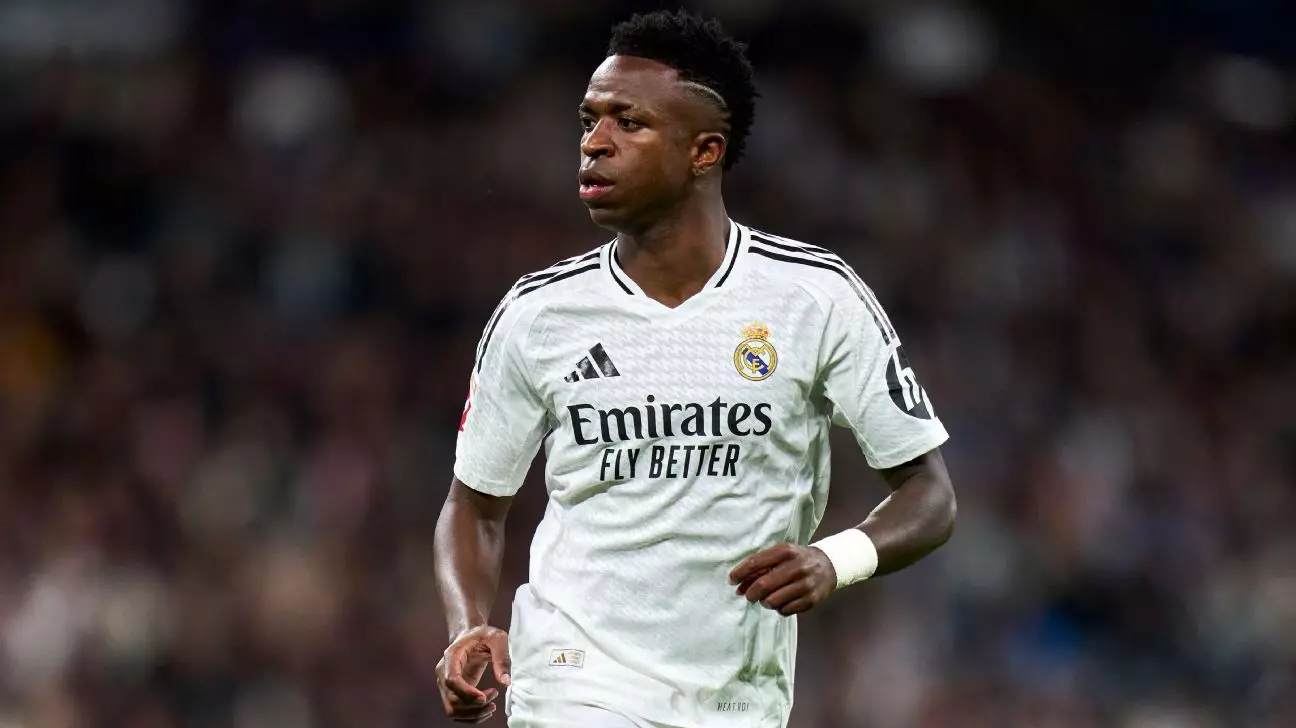At the prestigious Globe Soccer Awards, Cristiano Ronaldo stirred the pot with his outspoken defense of Vinícius Júnior, the Real Madrid forward who many believe was undeservedly overlooked for this year’s Ballon d’Or. In a candid statement, Ronaldo asserted that Vinícius had more than earned the accolade, particularly given his pivotal role in securing the Champions League title for Madrid and his goal-scoring contribution in the final match. Ronaldo’s remarks spotlight the ongoing conversation around the criteria for such prestigious football awards, as both fans and analysts alike grapple with the complexities surrounding the selection process.
Vinícius’s absence from the Ballon d’Or ceremony in Paris, alongside his teammates, speaks volumes about the player’s discontent with the recognition (or lack thereof) afforded to him. The award ultimately went to Rodri of Manchester City—a choice that has drawn mixed reactions across the football community. While Rodri undeniably had a commendable season, questions linger regarding whether individual accolades should hold as much weight in the shadow of monumental team achievements, such as those exemplified by Vinícius’s triumphs at Real Madrid. This debate raises a fundamental question: should awards be reflective of individual brilliance or closely tied to the success of the team?
Recognition Amidst Controversy
Although Vinícius faced disappointment at the Ballon d’Or ceremony, he later found solace in receiving FIFA’s The Best men’s player award, alongside the Globe Soccer best men’s prize just days later. Such honors highlight Vinícius’s exceptional form and talent over the past year, vindicating his status as one of the leading figures in football today. This further emphasizes the importance of recognizing players on various platforms, allowing them to maintain visibility even when some institutions overlook them.
In a separate yet intertwined discussion, Ronaldo took the opportunity to critique his former club, Manchester United, suggesting that the struggles the team faces are symptomatic of deeper-rooted issues beyond just coaching. His comments reflect a broader sentiment among supporters and analysts regarding the current management and strategic direction of the club. Ronaldo’s original insights serve as a reminder that while individual talent is critical, the structural integrity of a club is equally pivotal in fostering success for its players.
Ronaldo’s bold remarks illuminate an ongoing issue within the world of sports awards—whether adequate criteria exist to justly reward players based on their contributions. The overarching sentiment echoes the conclusion that communication between athletes and award-giving bodies is imperative in fostering fair play and recognition. As fans, analysts, and players continuously engage in these discussions, the landscape of football continues to evolve, raising the stakes of individual and collective accomplishments.
Ultimately, while awards like the Ballon d’Or are prestigious, the conversations that arise from their controversies often lead to a deeper understanding of talent, merit, and the essence of football as both an individual and team sport.

